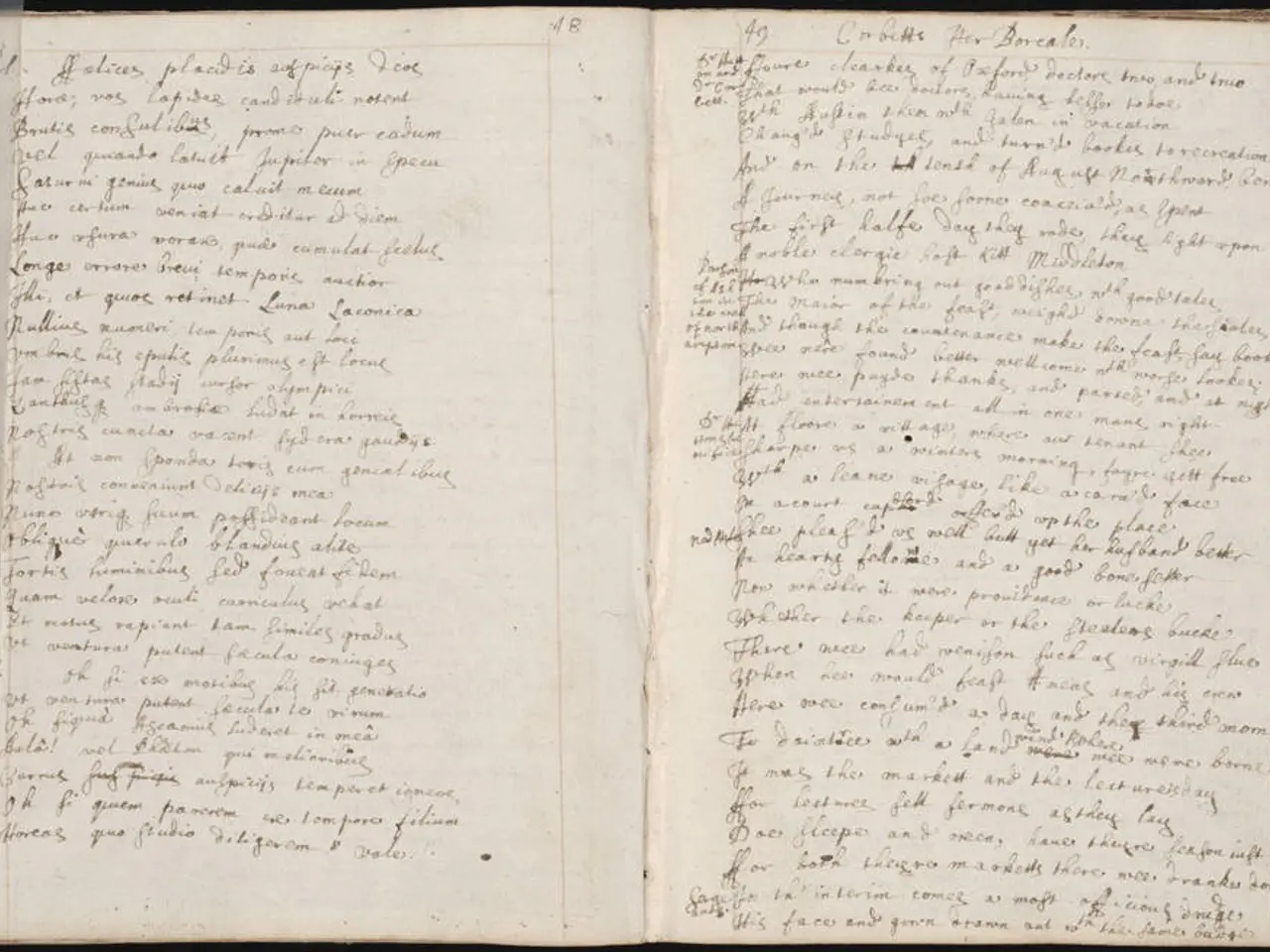Guide for Writing a Book Using ChatGPT in 2025 and Beyond
In the ever-evolving world of literature, artificial intelligence (AI) is making a significant impact, particularly with the introduction of AI-powered writing assistants like ChatGPT. This innovative tool, launched in late 2022, has sparked a new wave of interest in AI and its potential applications in the writing and publishing industry.
ChatGPT is designed to respond to text prompts in a natural, conversational manner, making it an invaluable resource for authors seeking assistance with various aspects of their work. The platform includes a mix of AI models, such as GPT-4o mini, GPT-4o, o1, o1-mini, o3-mini, and GPTs, each designed to excel in specific tasks.
One of the key advantages of ChatGPT is its ability to follow directions and provide structured answers, setting it apart from other tools. It also offers Custom Instructions, allowing users to tailor the AI's responses to fit their specific needs. Moreover, ChatGPT Plugins enable the AI to perform niche, repetitive, or specific tasks that require additional setup.
Authors can leverage AI writing tools like ChatGPT effectively by integrating them thoughtfully into various stages of the writing process. For instance, AI can be used for brainstorming and outlining, helping generate ideas, themes, and story concepts quickly. This can serve as a creative springboard without fully replacing the author's own vision.
During the drafting stage, AI can produce first drafts or help expand synopses, which authors can later revise and refine. Tools like Novelcrafter, an all-in-one AI platform tailored for novelists, offer features that support long-form nonfiction writing, helping authors organize material cohesively.
It is crucial to remember that AI should be viewed as a creative partner, offering suggestions and helping iterate ideas faster, but human oversight and creativity remain essential. Editing and infusing emotional depth remain human responsibilities to avoid the risk of formulaic or derivative writing.
When it comes to editing and polishing, while AI can assist with grammar, style, and consistency checks, over-reliance on AI-generated content can cause ethical issues and damage the book’s authenticity and reputation. Transparency about AI use and thorough manual editing are essential.
Sudowrite is another author-focused AI tool that offers a free trial of 10,000 words, allowing users to experiment with the tool before committing to a paid subscription. It is packed with features for tasks authors often need, such as brainstorming, character creation, and editing.
In summary, authors can maximise the benefits from AI writing tools like ChatGPT by using them to accelerate ideation, assist drafting, and enhance productivity, while safeguarding originality and human creativity through careful editing and ethical transparency. This hybrid approach helps maintain literary quality and fosters effective book writing and publishing in the evolving digital landscape.
A publisher could leverage the latest technology in the form of AI-powered writing tools like ChatGPT to collaborate more efficiently with authors, enhancing productivity without compromising the unique human creativity essential in the writing process. For instance, an artificial-intelligence publisher rocket could use ChatGPT to brainstorm ideas, draft initial content, and even help structure longer works, leaving the authors to refine, edit, and inject the necessary emotional depth and authenticity.




